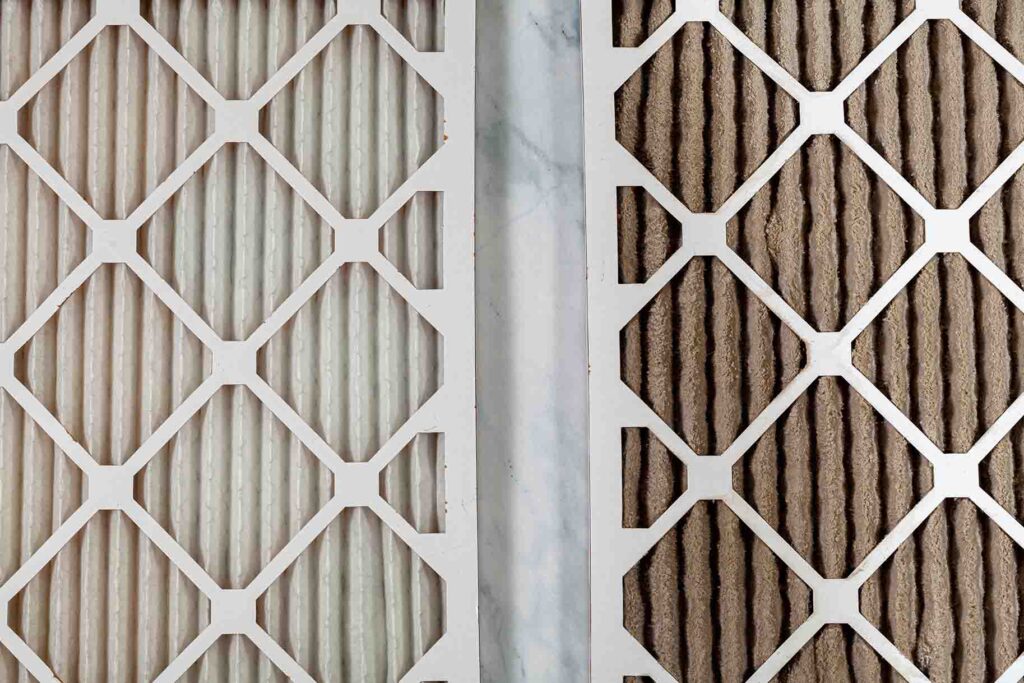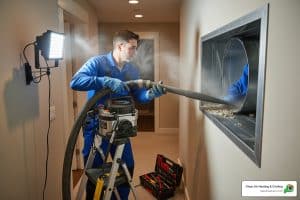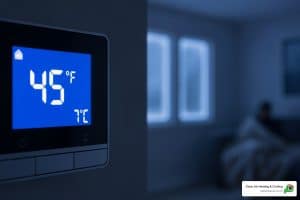Your HVAC system is important to your home, ensuring constant comfort and indoor air quality. One of the simplest and most crucial maintenance tasks for your system is changing the air filter regularly. Any homeowner can perform this task quickly, but many often forget or ignore this important bit of maintenance. We have put together this guide to changing air filters to help all our readers understand why they need to start inspecting their HVAC system’s filters and how to easily replace them!
The Importance Of Changing Air Filters
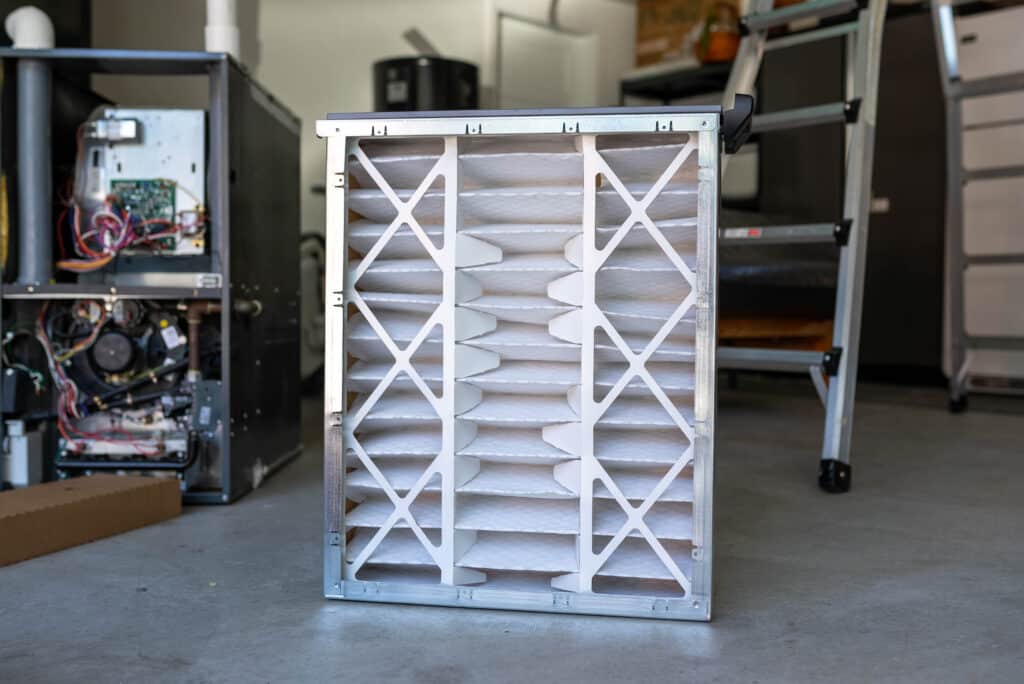
Air filters play a pivotal role in your HVAC system by trapping dust, allergens, pet dander, and pollutants, preventing them from circulating through your home. Over time, these filters become clogged with particles, restricting airflow and causing your HVAC system to work harder to maintain your desired temperature. Neglecting filter changes can result in various issues, from decreased energy efficiency and higher utility bills to costly repairs and a shorter HVAC system lifespan. Below are some of the most important reasons you need to change your HVAC system’s air filter:
- Improved Air Quality: The primary function of air filters is to trap and remove airborne particles, allergens, and contaminants from the air. Changing filters ensures that your HVAC system continues to provide clean and healthy indoor air.
- Energy Efficiency: A clogged air filter restricts the airflow through your HVAC system, causing it to work harder to keep you comfortable. This increased workload results in higher energy consumption and, subsequently, higher utility bills.
- Prolonged System Lifespan: When your HVAC system operates with a clean filter, it experiences less stress and wear. A clean filter allows the system to function smoothly, reducing the risk of breakdowns and costly repairs.
- Consistent Comfort: A clean air filter ensures consistent and balanced temperature control throughout your home. Clogged filters can lead to uneven heating or cooling, causing inconsistent temperatures in different areas of your house.
- Preventative Maintenance: Regular filter changes are an essential aspect of HVAC preventative maintenance. Addressing filter replacements on schedule can help detect potential issues with your HVAC system early, preventing more significant problems from developing.
When & How Often To Change Your Air Filter
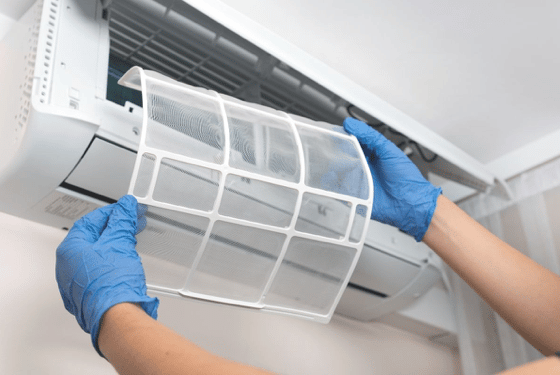
Changing HVAC air filters is one of the most important aspects of system maintenance, as it helps ensure your home’s air remains clean and your HVAC system functions efficiently. The timing for filter replacement depends on several factors, including the type of filter, household conditions, and individual needs. As a general guideline, it’s advisable to inspect your air filter monthly and replace it at least every 90 days. However, certain factors may necessitate more frequent replacements.
For instance, households with pets, people with allergies, or smokers should consider changing filters every 1 to 2 months to maintain optimal indoor air quality. Additionally, during peak heating or cooling seasons when your HVAC system operates more often, filters may clog up faster, warranting shorter replacement intervals. Though anywhere from 1-3 months is the generally accepted timeframe in which to change an air filter, there are warning signs to look out for that indicate a more immediate need for air filter replacement.
Signs Of A Dirty Air Filter
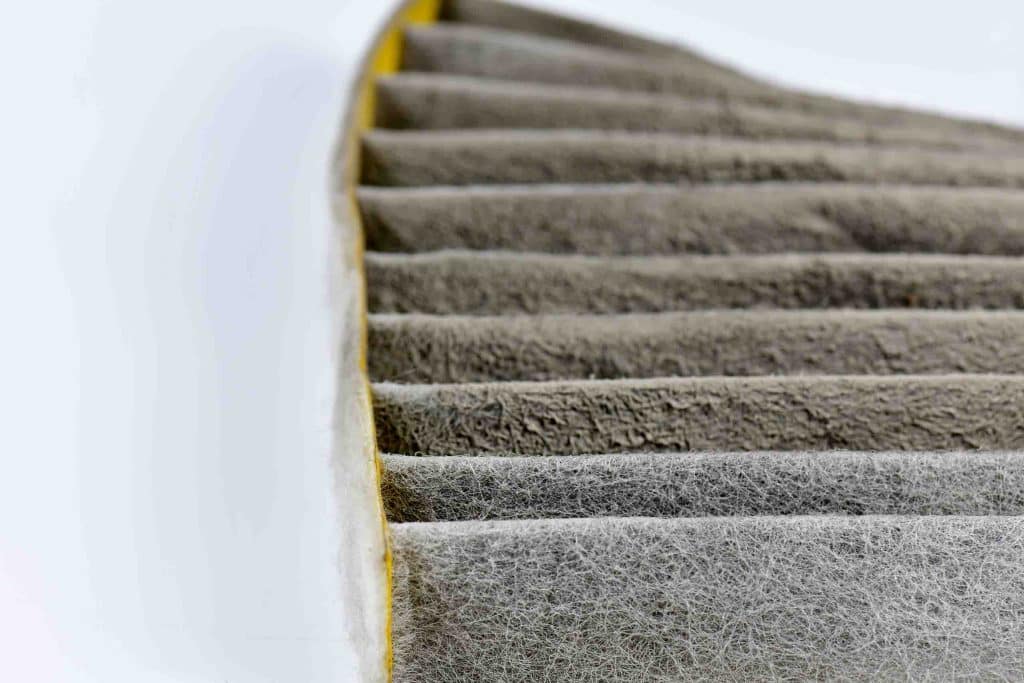
The warning signs of dirty or clogged HVAC air filters are unmistakable indicators that it’s time for a replacement. Reduced airflow from vents is a common early sign, leading to uneven heating or cooling in your home. Increased energy bills may catch your attention, as clogged filters force your HVAC system to use more energy. This increased need for energy usually results in what is known as short-cycling, during which time your HVAC system will run much more frequently than what is typical.
Most obviously, visible dust accumulation on the filter itself is a clear indication that it’s no longer effectively capturing airborne particles. In addition to dust, you may even notice mold or mildew forming. If you smell mold when your HVAC unit starts running, you should check the air filter immediately. When you notice any of these warning signs, it’s essential to change your HVAC air filter promptly to maintain safety, indoor air quality, system efficiency, and overall comfort in your home.
How Do HVAC Air Filters Get Dirty?
Understanding how HVAC air filters become dirty and clogged in the first place can help you grasp the importance of regular filter changes. Here are some key factors that frequently contribute to the accumulation of dirt and particles in your air filter:
- Airborne Particulates: HVAC filters capture airborne particles such as dust, dirt, pollen, and microscopic allergens. These particles are present in the air you breathe daily and are drawn into your HVAC system.
- Pet Hair and Dander: If you have furry friends at home, their shedding can contribute significantly to dirty air filters. Pet hair and dander easily become airborne and are sucked into the HVAC system, where they get trapped in the filter.
- Household Activities: Everyday activities like cooking, cleaning, and even walking through your home can stir up dust and particles, increasing the load on your air filter.
- Outdoor Environment: Pollen, grass clippings, leaves, and other outdoor debris can be carried indoors through open doors and windows, eventually finding their way into your HVAC system.
- Smoking: If anyone in your household smokes indoors, tobacco smoke can significantly contribute to filter contamination. Smoke particles and odors are trapped by the filter.
Different Types Of Air Filters
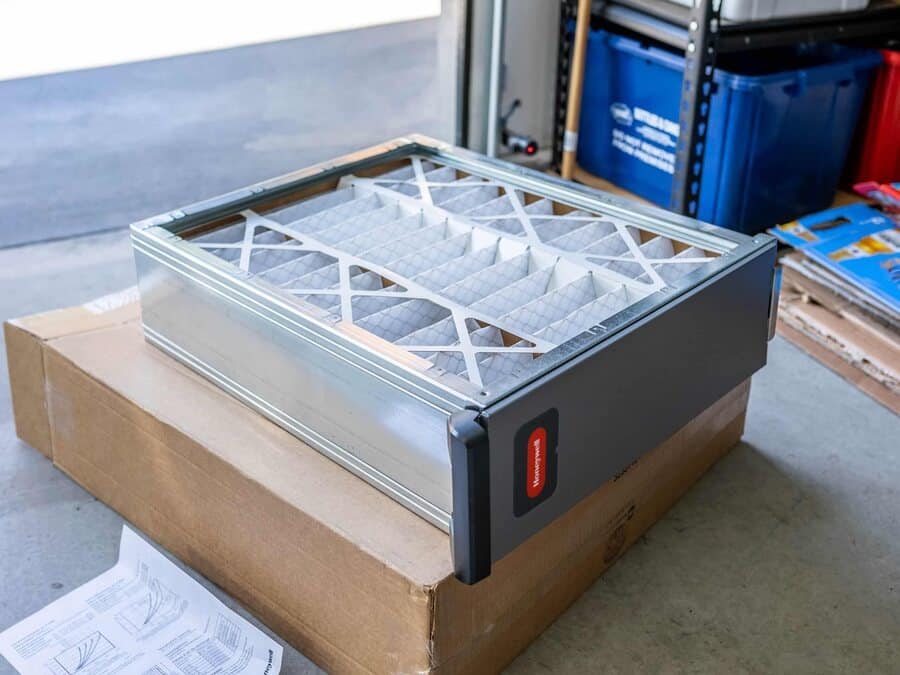
Air filters for HVAC systems come in various types, each with its unique characteristics and filtration efficiency. Basic fiberglass filters are affordable and capture larger particles like dust and debris, making them suitable for households with minimal air quality concerns. Pleated filters offer improved filtration by trapping smaller particles and allergens, making them a popular choice for most homes. These two types of filters are the cheapest options for homeowners, but they are certainly better for your home and HVAC system than any type of dirty filter.
High-Efficiency Particulate Air (HEPA) filters are the gold standard for filtration, capable of trapping even the tiniest particles, ideal for those with severe allergies or respiratory conditions. You could also consider an activated carbon filter, which is excellent for removing odors and chemicals from the air; these are mainly used in environments with heavy smokers or frequent strong odors. Understanding the differences between these filter types allows homeowners to choose the one that best suits their specific air quality needs and HVAC system requirements.
How To Change Your Air Filter
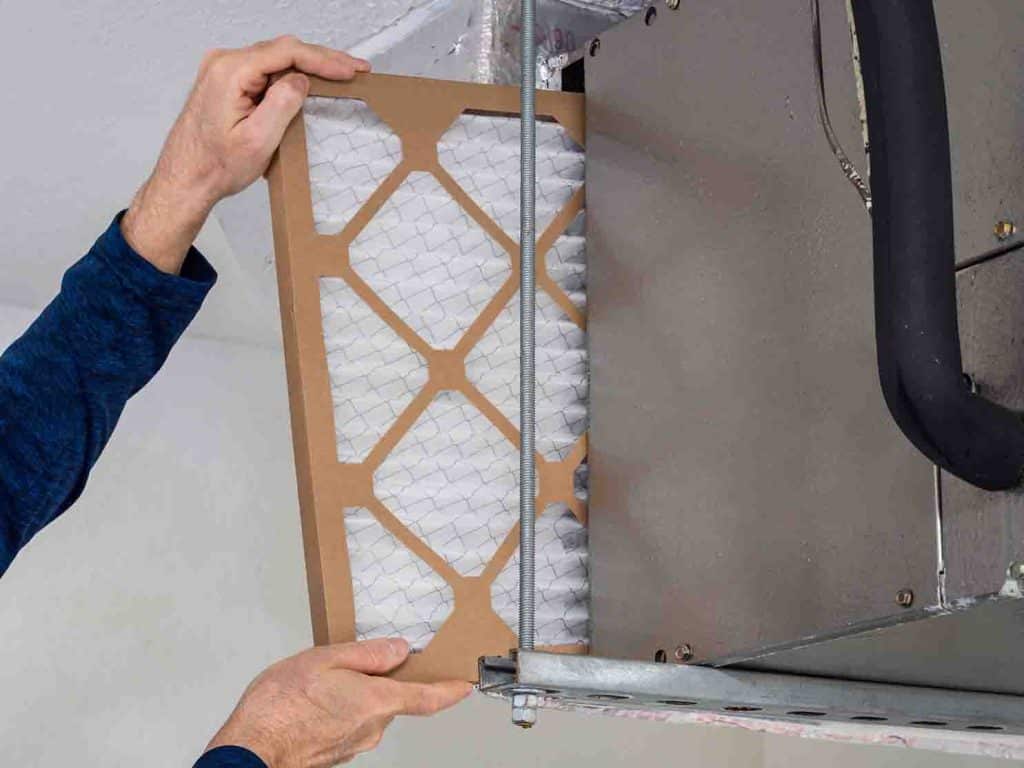
Changing your HVAC air filter is a straightforward process. Every homeowner should at least know where the filter is located and how to inspect it in order to prevent contaminants or harmful vapors from being circulated through the home. Remember these easy steps when you want to change your HVAC system’s filter:
- Turn Off Your HVAC System: Before you begin any inspection, turn off your HVAC system to ensure your safety.
- Locate The Filter: Find the filter compartment, which is typically near the return air duct or furnace unit.
- Remove The Old Filter: Carefully slide out the old filter, noting the direction of airflow marked on the filter frame.
- Choose The Right Replacement: Select a new air filter that matches the size and type of your old filter.
- Install The New Filter: Insert the new filter into the filter compartment, still following the airflow direction indicator. Replace the filter cover (if applicable), and you’re all set!
Though air filter replacement is a simple DIY process that should be done every 1-3 months, other HVAC maintenance inspections are a bit more complicated. Calling an HVAC professional for a yearly maintenance inspection will help keep your system running like new! Call Clean Air Heating & Cooling today for all your HVAC maintenance needs in San Juan County, WA!

